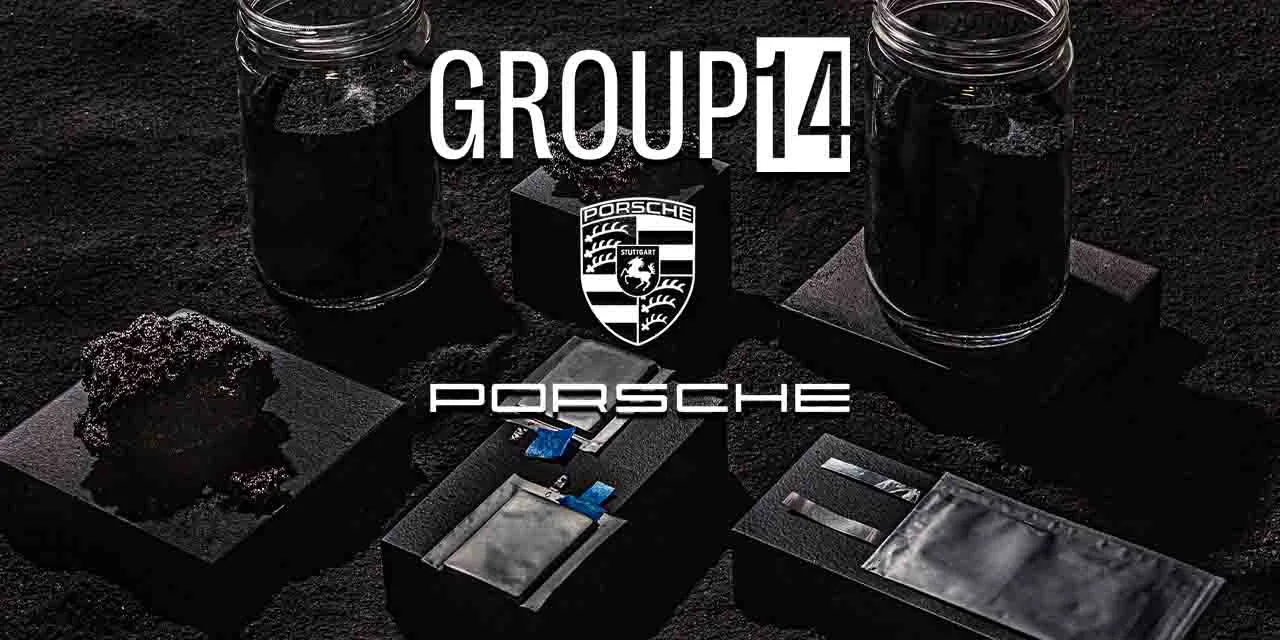The German automaker Porsche has managed to successfully change with time. Its first electric vehicle is outselling the quintessential 911 sports car. Hence, the automaker has responded by upping its bet on EVs. It has done so via a hefty investment in lithium-silicon battery developer Group14 Technologies.
Porsche injected $100 million into Group14 as part of a larger $400 million Series C funding round. Other investors that chipped in include Canadian pension fund OMERS, Decarbonization Partners, private equity firm Riverstone, Vsquared Ventures, and Moore Strategic Ventures.
Porsche – Group 14 Technologies Silicon Battery
Group14’s key technology is silicon-carbon powder. This powder can either replace or augment graphite anodes. Graphite is the key ingredient in most of today’s lithium-ion batteries. Furthermore, it’s a sensible anode because it’s stable and can store a reasonable amount of energy.
Automakers are now trying to find efficient ways for higher energy densities. Automatically, silicon is an attractive alternative since it’s able to hold far more lithium, in theory up to 10 times more. But the same pro is also one of its cons. Because silicon absorbs so much lithium, the molecular-scale expansion and contraction can degrade the anode’s structure, leading to premature failure.

Group14 is among the many startups racing to develop silicon-based anodes. These anodes can be repeatedly charged and discharged without breaking down. To achieve that, the company infuses a porous carbon scaffold with a silicon-containing gas. The resulting product is a carbon compound that’s peppered with nanoscale silicon particles. Those particles serve to grab hold of lithium ions while the carbon scaffold serves as a stable structure so the anode doesn’t decompose as it’s used. The startup says that its carbon-silicon material can be blended with graphite anodes. Moreover, it can be dropped into an existing battery production line with few modifications.
Decarbonizing the auto industry
Advancing battery tech is key to decarbonizing the auto industry. This accounted for 9% of global greenhouse gas emissions in 2018, per Greenpeace. For example, Decarbonization Partners is a joint venture between BlackRock and Temasek. The pair has backed some intriguing, sustainability-focused firms such as mushroom leather startup MycoWorks. The $97.3 billion investing giant has a tendency to talk out of both sides of its mouth.
For Group14, the new deal represents a big step up, by nearly a factor of 10. Prior to the raise, the Woodinville, Washington-based startup had reportedly secured a combined $41.5 million or so in venture dollars and government grants.



